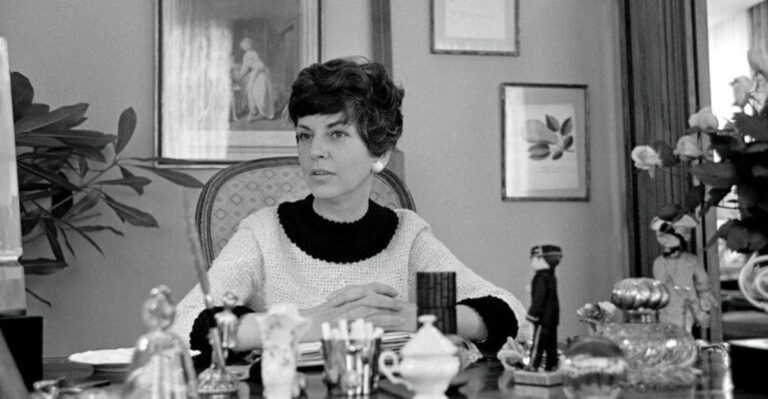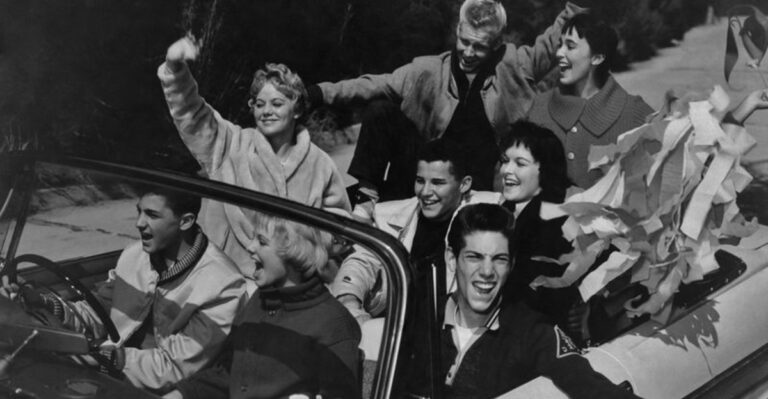17 Disrespectful Things You Should Definitely Never Say To A Boomer
Navigating the generational divide can be tricky. Each generation has its unique challenges, triumphs, and cultural touchstones. Unfortunately, certain phrases can come off as dismissive or disrespectful, especially to Baby Boomers.
This listicle explores 17 things you might want to avoid saying to a Boomer, each with a humorous touch to highlight why these comments might not go over well.
1. “Okay, Boomer.”

The phrase “Okay, Boomer” has become a cultural meme, often used to dismiss an older person’s opinions or concerns. While it’s meant to be humorous, it can feel like a dismissal of a lifetime of experiences and wisdom.
For Boomers, who have witnessed significant historical changes, being brushed aside with a catchy phrase can be frustrating. It implies their ideas are outdated, even when they might offer valuable insights.
Humor is subjective, and what’s funny to one person may be patronizing to another. Using this phrase might momentarily amuse, but it can also create unnecessary barriers.
2. “You’re too old to understand this.”

Age doesn’t necessarily correlate with understanding, especially in a world where lifelong learning is celebrated. Telling a Boomer they’re too old to grasp something can be both insulting and inaccurate.
Many Boomers are tech-savvy and eager to learn new things, often outpacing younger generations in certain skills. This comment disregards their adaptability and willingness to grow.
It’s important to recognize that wisdom doesn’t have an age limit. By assuming they can’t understand, we lose out on their potential contributions.
3. “That’s not how we do it these days.”

The methods and practices of past generations hold valuable lessons. Telling a Boomer “That’s not how we do it these days” disregards the efficacy of their tried-and-true techniques.
Boomers have seen the evolution of many systems and methods, often contributing to improvements. While times change, the core principles often remain the same.
Instead of dismissing their approach, it’s more productive to bridge the gap with dialogue and understanding. Collaboration often brings out the best in both perspectives.
4. “Why don’t you just retire already?”

Retirement is a personal choice, not a mandate. Suggesting that a Boomer retire dismisses their drive, ambition, and desire to continue contributing.
Many Boomers find purpose and fulfillment in their careers well into traditional retirement age. Their experience is invaluable, and their passion can be infectious.
Instead of pushing them towards retirement, it’s crucial to appreciate their contributions and recognize that every individual’s journey is unique.
5. “Your generation ruined everything.”

Blaming an entire generation for current problems is overly simplistic and dismissive. Boomers have faced numerous challenges and have contributed significantly to society.
Every generation has its share of triumphs and failures. Generalizing blame ignores the complexities and efforts made by many Boomers to enact positive change.
Fostering mutual understanding and collaboration across generations is essential for addressing societal issues. Blame divides, but cooperation unites.
6. “You’re so out of touch with reality.”

Being in touch with reality doesn’t have an age limit. Many Boomers are well-informed, keeping up with current events and cultural shifts.
This phrase can feel like a dismissal of their knowledge and engagement. Boomers have lived through significant historical events, providing them with unique perspectives.
Respecting their insights and recognizing their engagement with the world can lead to richer, more informed conversations.
7. “We don’t need your advice.”

Advice from those who have walked the path before us can be invaluable. Telling a Boomer their advice isn’t needed cuts off a source of wisdom and experience.
While not every piece of advice will be applicable, dismissing it outright misses the opportunity for learning from past experiences.
Embracing advice with an open mind can lead to growth and understanding, benefiting both parties involved.
8. “That’s not relevant anymore.”

Relevance is subjective and often tied to perspective. What seems irrelevant to one person may hold significance to another.
Boomers have seen trends come and go, and their insights into the cyclical nature of society can be enlightening.
Instead of dismissing their input, consider the broader context and how past experiences can inform present situations.
9. “It’s all online—figure it out.”

Assuming everything can be solved online overlooks the value of personal interaction and guidance. Many Boomers appreciate hands-on learning and direct communication.
This comment can feel like a brush-off, ignoring the diverse ways people learn and interact with technology.
Patience and understanding in bridging technological gaps can lead to more effective communication and collaboration.
10. “You wouldn’t get it, it’s a Gen Z thing.”

Generational differences in culture and trends are natural, but assuming someone won’t understand them is limiting. Boomers are often more adaptable and open-minded than given credit for.
This phrase can create unnecessary divides, reinforcing stereotypes rather than fostering understanding.
Sharing cultural interests across generations can lead to dynamic exchanges and enrich everyone’s perspectives.
11. “That’s not politically correct anymore.”

The concept of political correctness evolves, but it doesn’t mean older generations are unwilling to adapt. Many Boomers are open to learning and understanding new norms.
Telling them something isn’t politically correct without context can feel accusatory and condescending.
Providing explanations and engaging in dialogue fosters a more inclusive and understanding environment.
12. “You’re too old to care about this stuff.”

Passions and interests don’t diminish with age. Many Boomers are enthusiastic about diverse hobbies and causes, staying actively engaged in their communities.
Suggesting they’re too old to care is dismissive of their enthusiasm and contributions.
Caring is timeless, and recognizing their active participation enriches both individual and community experiences.
13. “Your opinions are outdated.”

Opinions are shaped by personal experiences and cultural contexts. Labeling them as outdated without consideration disregards the value of diverse perspectives.
Boomers have witnessed and influenced significant social changes, offering unique viewpoints that can still resonate today.
Valuing their opinions fosters dialogue and mutual respect, paving the way for more comprehensive understanding.
14. “No one does it that way now.”

Traditions and skills from earlier times often hold enduring value. Dismissing them with “No one does it that way now” overlooks the richness they bring.
Boomers have honed skills that may not be mainstream but are still appreciated for their craftsmanship and authenticity.
Celebrating these practices adds depth to our cultural tapestry, honoring contributions across generations.
15. “You’re overreacting—it’s not a big deal.”

Emotions and reactions are deeply personal. Telling someone they’re overreacting invalidates their feelings and experiences.
Boomers have lived through numerous challenges, and their reactions are informed by a lifetime of experiences.
Empathy and understanding in listening can foster stronger connections and trust among generations.
16. “This is why younger people can’t stand Boomers.”

Generational tensions exist, but using them to generalize dislike is counterproductive. Many Boomers and younger people have strong, positive relationships.
This phrase can perpetuate stereotypes, creating divides rather than encouraging dialogue and understanding.
Focusing on commonalities rather than differences can build bridges across generations, fostering a more inclusive society.
17. “Why don’t you just get with the times?”

Adaptation is a journey, not a destination. Many Boomers are actively learning and engaging with modern technology and trends.
This comment can feel dismissive, overlooking their efforts and achievements in staying current.
Acknowledging their adaptability and encouraging continued learning fosters mutual appreciation and respect.







